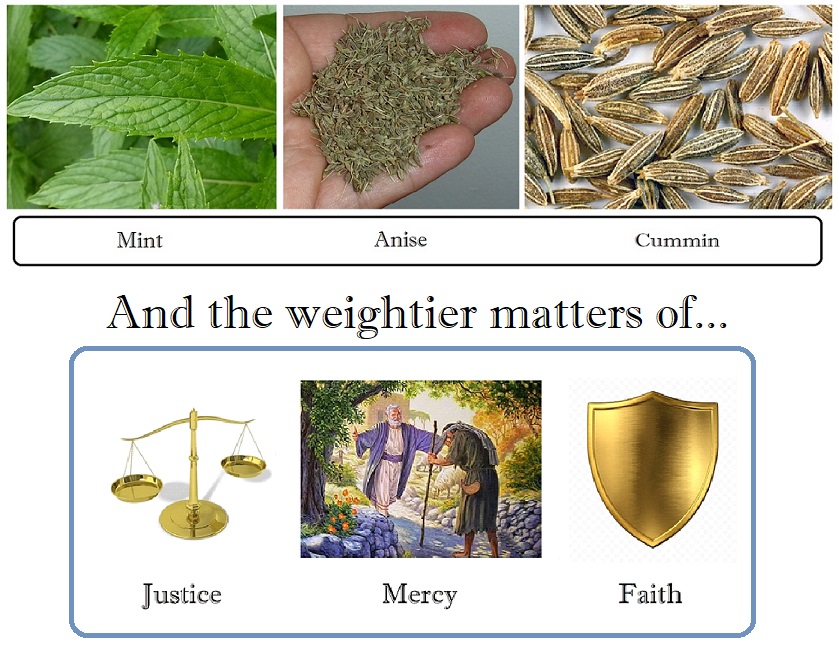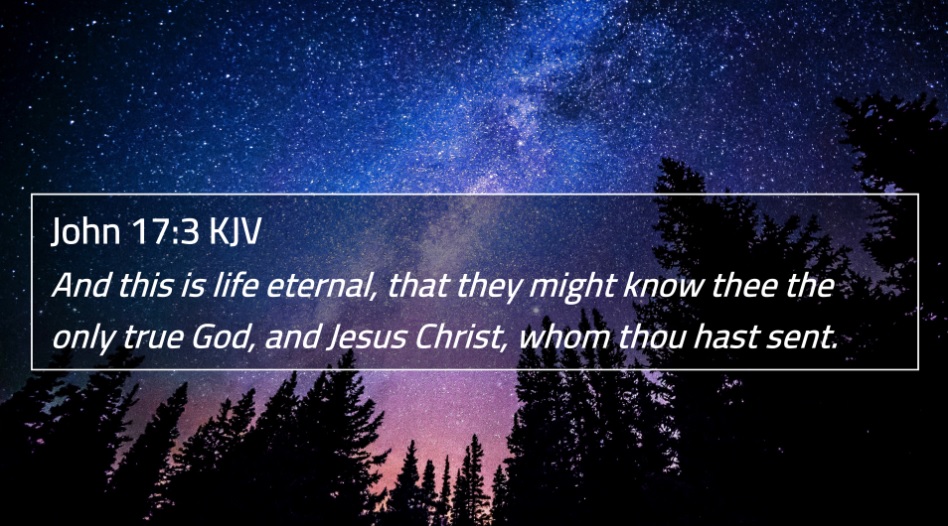“Go therefore and make disciples of all the nations…teaching them to observe all that I commanded you; and lo, I am with you always, even to the end of the age” (Matthew 28:19-20, NASB).
——————–
Contents:
1) To Timothy: How To Live By Faith In Any Century, 1 Timothy 6:1-20 (Jon W. Quinn))
2) Pointed Perceptions (Perry Hurst)
3) Our Responsibility Toward One Another (video sermon, Tom Edwards)
——————–

-1-
To Timothy: How To Live By Faith In Any Century
1 Timothy 6:1-20
Jon W. Quinn
It is remarkable how the teachings of the Bible seem so applicable to life’s situations in the twentieth century. There is a reason for that; it addresses unchanging human needs and longings. In our constantly changing world there are some things that remain the same. Spiritual, moral, emotional problems which exist today are the same as existed in the first century. The answers are the same as well.
For the Christian, there are several things to do to insure our walk by faith will be successful. Paul writes to Timothy about some of these things encouraging him to pass the word along to others as he fulfills his role as a preacher. Notice the sixth chapter of first Timothy for some important advice from Jesus to His people as given through His apostle.
Concern for God’s Reputation
“Let all who are under the yoke as slaves regard their own masters as worthy of all honor so that the name of God and our doctrine may not be spoken against” (1 Timothy 6:1).
Our society has done away with the institution of slavery, and for that we are thankful. But do not think that this admonition is outdated; it is not. There is still a social order. There are still those in authority. We can still damage our God’s name and our doctrine by being belligerent, rebellious or disorderly.
“For such is the will of God, that by doing right you may silence the ignorance of foolish men” (I Peter 2:15).
There are many ways in which we can act so that we bring reproach upon God and the teachings of the New Testament. To be lazy or dishonest; to be arrogant or selfish; to be weak-willed or hypocritical would allow enemies of God to charge that belief in God and living by His word causes such behavior. Of course, it is a false charge, but one that will be made just the same. Do not allow your undisciplined actions be the excuse for such talk.
Concern for Sound Doctrine
“If anyone advocates a different doctrine, and does not agree with sound words, those of our Lord Jesus Christ, and with the doctrine conforming to godliness, he is conceited and understands nothing…” (1 Timothy 6:3-4a).
Many will tell you that doctrine is not very important and a person’s doctrinal stance should make very little difference. But the context of this verse proves that God looks at the matter of doctrinal purity as being very important. One who has a casual attitude toward doctrine has a much different attitude than what the New Testament teaches us to have. The context suggests that strife and division result from those who advocate different doctrines; not from those who insist that doctrinal purity be maintained. It is not that we should insist on having everything just our way; we definitely should not. But we must insist on having everything God’s way. His word must be our only standard.
Concern for Proper Values
“But godliness actually is a means of great gain, when accompanied by contentment…for the love of money is the root of all sorts of evil, and some by longing for it have wandered away from the faith, and pierced themselves with many a pang” (1 Timothy 6:6,10).
When a person’s values are warped, then his priorities will also be. Many are obsessed with money and because of that have cheated others, hurt their loved ones and emptied their lives of any true meaning. It is easy for a rich person to surround himself with people, but difficult to know who his true friends are. A man or woman who has made themselves rich but destroyed their relationship with God and family is certainly not to be envied. Even the rich must resign themselves to take no more out of this world than what they brought into it. There is something better than riches… there is “the treasure of a good foundation for the future, so they may take hold of that which is life indeed” (1 Timothy 6:19).
“…for where your treasure is, there will your heart be also” (Matthew 6:21).
Concern for Winning the Fight
“Fight the good fight of faith; take hold of the eternal life to which you were called, and you made the good confession in the presence of many witnesses” (1 Timothy 6:12).
Discipleship is not for the weak of character. There are things which must be avoided and principles for which to stand. “Pursue righteousness, godliness, faith, love, perseverance and gentleness.”
Such commitment calls for strength and courage. It means having to stand for what is right even when in the minority. Paul reminds Timothy of how Jesus stood before Pilate and spoke the truth. He would not hide what He was nor what He stood for. He handled the truth with dignity and was unashamed of His position, though in bonds and being terribly mocked and ridiculed. Never has there been a better example of a hero than Jesus. Certainly disciples of Jesus will not yield their ground when they stand on the rock of truth. How sad that some members of the church have already surrendered by waving the white flag and dropping their weapons and armor. They make compromises with the world whenever the world demands it. They will not speak up in behalf of the Savior; they will not endure hardship; they will not put His kingdom first. How unlike our Jesus they are.
“Put on the full armor of God, that you may be able to stand firm against the schemes of the devil” (Ephesians 6:11).
Concern for Honoring Christ
“He who is the blessed and only Sovereign, the King of kings and Lord of lords; who alone possesses immortality and dwells in unapproachable light; whom no man has seen or can see. To Him be honor and eternal dominion! Amen” (1 Timothy 6:15b-16).
Jesus deserves our complete loyalty. He deserves our love and adoration. What He has done for us is far beyond what we deserve. If we have done everything for Him that it is possible for us to do we have still done far less than He deserves.
One day He shall return. We shall then see Him in His glorified state. But we must not wait until then to glorify Him. It is now the time to bow our knees before the King. It is now the time to make sure that all know who it is that we honor. It is now the time to sing His praises; proclaim His word; give thanksgiving in His name and do His work. On that final day at the conclusion of this age, when this mortality has put on immortality and we behold Him in the light which for now is unapproachable, we shall know with certainty that all our honor of Him in this life has been well placed!
Concern for Our Stewardship
“…guard that which has been entrusted to you…” (1 Timothy 6:20).
We have been entrusted with the gospel of Christ. As His people, we need to insure that we do not squander our opportunities to invest it. The gospel is God’s power to save, but there must be those willing to take the gospel to others. In the New Testament times, the early church was extremely successful at this, in part because they realized that it was not only the preacher’s responsibility to take the gospel to others, but each and every Christian. How does God look upon those who would know His will but not share it with others? He will hold us accountable for what we do with the things which He has entrusted to us.
— Via Expository Files 1.5; May 1994
——————–
“not lagging behind in diligence, fervent in spirit, serving the Lord”
Romans 12:11, NASB
——————–

-2-
Pointed Perceptions
Perry Hurst
The Psalmist said, “This is the day which the Lord has made, Let us rejoice and be glad in it” (Psalm 118:24). This passage causes us to reflect upon an attitude that we ought to have each day of our lives! But how can that be? How can we have such a positive feeling of joy each day? We have trials, sorrows, temptations, heartaches, pains, disappointments, needs, etc. Joy in the midst of all these struggles? Some may think it to be impossible, yet we find the key to such a positive outlook in 2 Corinthians 4:17-18: “For our light affliction, which is but for a moment, is working for us a far more exceeding and eternal weight of glory, While we look not at the things which are seen, but at the things which are not seen; for the things which are seen are temporal, but the things which are not seen are eternal.”
— Via The Beacon, June 12, 2022
——————–
-3-
Our Responsibility Toward One Another
Tom Edwards
For the video sermon with the above title, just click on the following link:
https://thomastedwards.com/wordpress/Serving_Others_080722.mp4
——————–
The Steps That Lead to Eternal Salvation
1) Hear the gospel — for that is how faith comes (Rom. 10:17; John 20:30-31).
2) Believe in the deity of Jesus Christ, the Son of God (John 8:24; John 3:18).
3) Repent of sins. For every accountable person has sinned (Romans 3:23; Romans 3:10), which causes one to be spiritually dead (Ephesians 2:1) and separated from God (Isaiah 59:1-2; Romans 6:23). Therefore, repentance of sin is necessary (Luke 13:5; Acts 17:30). For whether the sin seems great or small, there will still be the same penalty for either (Matt. 12:36-37; 2 Cor. 5:10) — and even for a lie (Rev. 21:8).
4) Confess faith in Christ (Rom. 10:9-10; Acts 8:36-38).
5) Be baptized in water for the remission of sins (Mark 16:16; Acts 2:38; 22:16; 1 Pet. 3:21). This is the final step that puts one into Christ (Gal. 3:26-27). For from that baptism, one is then raised as a new creature (2 Cor. 5:17), having all sins forgiven and beginning a new life as a Christian (Rom. 6:3-4). For the one being baptized does so “through faith in the working of God” (Col. 2:12). In other words, believing that God will keep His word and forgive after one submits to these necessary steps. And now as a Christian, we then need to…
6) Continue in the faith by living for the Lord; for, if not, salvation can be lost (Matt. 24:13; Heb. 10:36-39; Rev. 2:10; 2 Pet. 2:20-22).
——————–
Tebeau Street
CHURCH OF CHRIST
1402 Tebeau Street, Waycross, GA 31501
Sunday: 9 a.m. Bible Classes and 10 a.m. Worship Service. We also have a Song Service at 5 p.m. for every first Sunday of the month.
Wednesday: 7 p.m. for Bible Classes
evangelist/editor: Tom Edwards (912) 281-9917
Tom@ThomasTEdwards.com
https://thomastedwards.com/go/all.htm (This is a link to the older version of the Gospel Observer website, but with bulletins going back to March 4, 1990.)
















